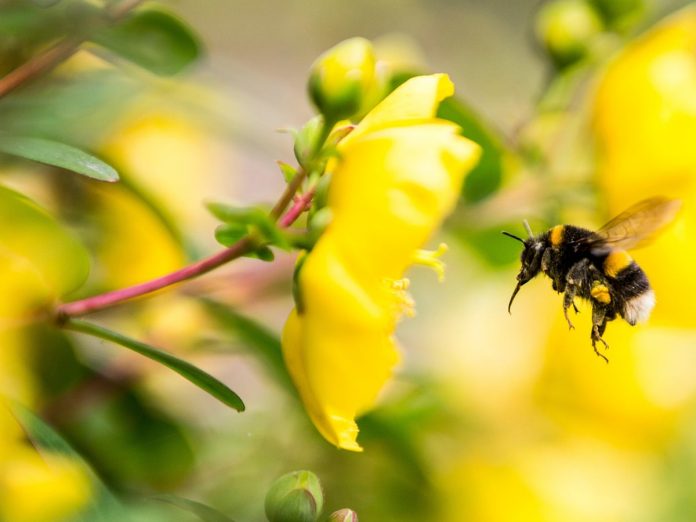Honey bees love caffeine and some plants have developed methods of adding caffeine to the nectar the plants produce in order to keep bees coming back to the plants. Margaret Couvillon and Roger Schürch of the University of Sussex in Britain are the first to show that plants drug bees with caffeine to make the bees forage around the plants persistently and repeatedly.
Previous research conducted by other biologist has proven that bees love caffeine. Bees like caffeine so much that the bees will pass on plants that have a higher level of nectar in order to get nectar from plants that have caffeine in the nectar. The caffeine makes the nectar less sweet and this lack of sweetness may be a further inducement to make bees seek out caffeine laced flowers preferentially. The caffeine also adds to the level of energy in the bees just like it does in humans.
The researchers tested the response of individual bees to feeders that had caffeine and sucrose and to feeders that had only sucrose. The bees foraged more around the feeders that contained caffeine. The caffeine also induced the bees to inform other bees of the location of the caffeine laced food. Bees talk to each other about the location of a food source by performing a distinctive dancing movement.
There is a down side to caffeine addicted bees. The rate of honey production and the level of pollination of plants can decrease when bees begin to have a preference for plants that add caffeine to the nectar. The addiction to caffeine is a concern that is added to the decrease in the bee population that has been seen in recent years. The plants evolved to attract bees with caffeine and the researchers found other additive compounds in most flowers that may change bee behavior.















